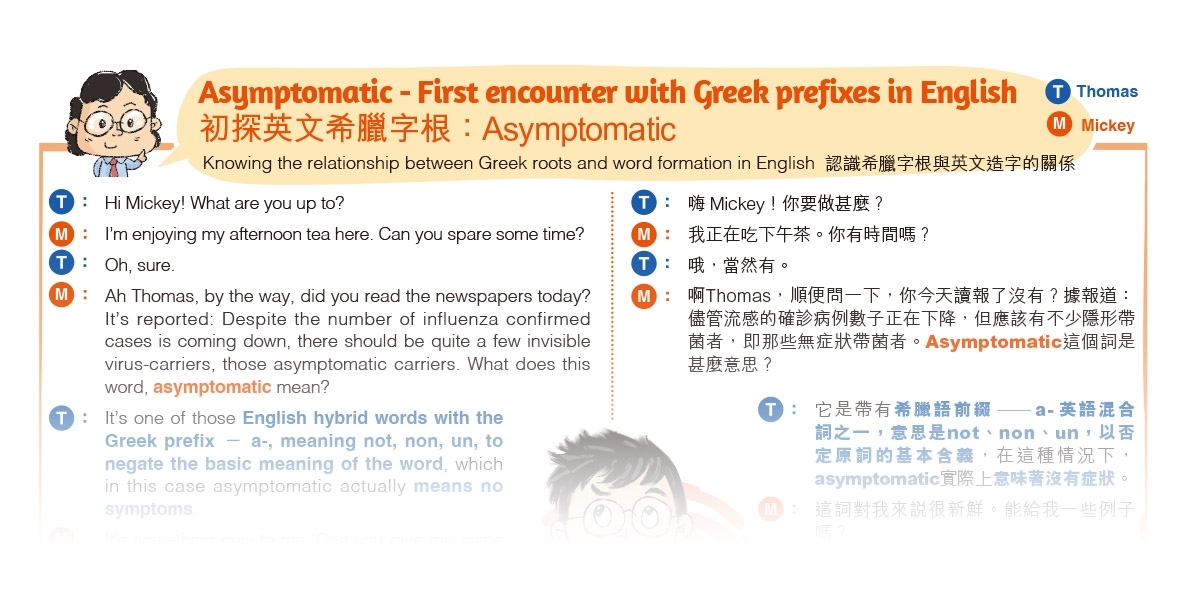
Asymptomatic - First encounter with Greek prefixes in English
初探英文希臘字根:Asymptomatic
Knowing the relationship between Greek roots and word formation in English
認識希臘字根與英文造字的關係
T : Thomas |M : Mickey
T: Hi Mickey! What are you up to?
M: I’m enjoying my afternoon tea here. Can you spare some time?
T: Oh, sure.
M: Ah Thomas, by the way, did you read the newspapers today? It’s reported: Despite the number of influenza confirmed cases is coming down, there should be quite a few invisible virus-carriers, those asymptomatic carriers. What does this word, asymptomatic mean?
T: It’s one of those English hybrid words with the Greek prefix - a-, meaning not, non, un, to negate the basic meaning of the word, which in this case asymptomatic actually means no symptoms.
M: It’s something new to me. Can you give me some examples?
T: Sure. I can think of the following, to start with: asymmetrical; atypical and even abnormal, where the ab is a variation of a.
M: Wow! I haven’t come across something like these.
T: Haha! It’s time you should read more books.
T:嗨 Mickey!你要做甚麼?
M: 我正在吃下午茶。你有時間嗎?
T: 哦,當然有。
M: 啊Thomas,順便問一下,你今天讀報了沒有?據報道: 儘管流感的確診病例數子正在下降,但應該有不少隱形帶菌者,即那些無症狀帶菌者。Asymptomatic這個詞是甚麼意思?
T: 它是帶有希臘語前綴 —— a- 英語混合詞之一,意思是not、non、un,以否定原詞的基本含義,在這種情況下, asymptomatic實際上意味著沒有症狀。
M: 這詞對我來說很新鮮。能給我一些例子嗎?
T: 當然可以。首先,我可以想到以下幾點:不對稱(asymmetrical);非典型的(atypical);冷漠(apathy);甚至異常(abnormal),其中ab是a的變體。
M: 哇!我從沒有接觸過這些詞。
T: 哈哈,你是時候要多看書了!






